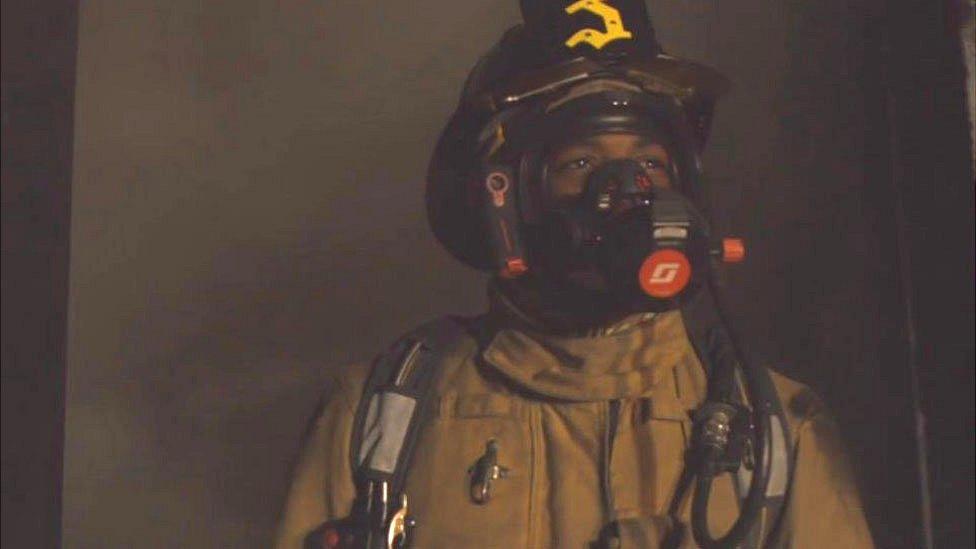Flintshire thermal camera technology for firefighters
- Published

The technology is being used in the United States with a mask and breathing apparatus
Ground-breaking thermal imaging software developed in Flintshire is being launched for firefighters in Europe.
Scott Sight has been used in the USA for the last six months.
It provides a firefighter with a small camera that attaches to existing masks and allows them to see thermal images on a micro-screen in real time.
Traditionally, handheld equipment has been used which limits movement and means only one is used per crew.
Flint-based Taylor Dowding Innovation (TDI) designed the electronics, software and the system for transferring the data for Scott Safety, a leading manufacturer of personal safety equipment.
TDI argues that it can help save lives by giving firefighters more information in smoke filled environments.
The company is part of the growing Welsh technology sector which employs 39,000 people.
TDI started four years ago as a specialist in video and hazardous environments.
Most of the key parts were developed over the last nine months.
Brian Meechan is shown how it works in a smoke-filled house
Mike Stirling, technical director, said: "Hand-held thermal imagers can be quite a bit more costly so there is an opportunity for more fire fighters to have them and this is also completely hands-free, which is also beneficial."
"A lot of this is down to the miniaturisation possible with electronics, while thermal-imaging sensor elements are more integrated and the development of small displays and better technology has improved, driven by mobile phone developments."
Scott Safety said the technology was cutting edge and could be integrated into each of the fire fighters' masks and breathing apparatus "giving them back their sight and also feeing up their hands for important fire fighting tasks".
'High value'
According to the technology network, Estnet, there are 3,100 companies operating in the "chips to clicks" sector which contributes £8.3bn to the Welsh economy.
Estnet managing director Avril Lewis said the rate of technological development meant ideas could come to market very quickly.
"The technology industry is crucial to Wales and the Welsh economy, because we underpin other key economic sectors, the public sector and the social environment," she said.
"We're employing nearly 39,000 people and forecasting 7% growth over the next three years. We're a high-value industry and, as a result, we need to attract high-value people - and it's a well-paid, interesting industry.
"Another part of Estnet is ensuring we have the right skills coming through and we're working very hard with universities to ensure graduates have good-employability skills so they can help our businesses hit the ground running faster."